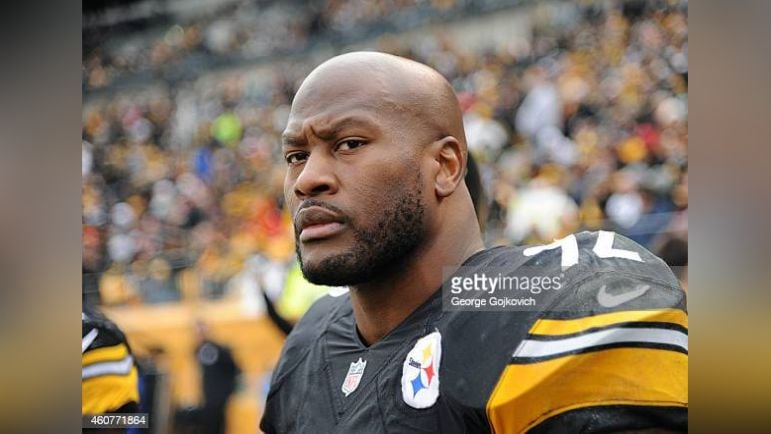For more than a decade, former Pittsburgh Steelers General Manager Kevin Colbert had one of the best seats in the house to watch the impressive performances that former wide receiver Hines Ward and outside linebacker James Harrison put on the field almost week after week.
Those performances helped the Steelers win two Super Bowls under Colbert and appear in a third.
Now, Ward and Harrison are semifinalists for the Pro Football Hall of Fame’s Class of 2024, making the list of 25 semifinalists Tuesday after it was narrowed down from 173.
For Colbert, both should be in the Hall of Fame because of not only how much they overachieved in their careers, but for the impact they had on the game from a production and rules standpoint.
Appearing on 93.7 The Fan’s Morning Show Thursday, Colbert was very complimentary of Ward and Harrison, making the case for both to be enshrined in the Pro Football Hall of Fame.
For Ward, it was the chip on the shoulder that he played with, going from quarterback in college to wide receiver in the NFL. That chip helped him become one of the toughest players in the league, and the best blocking wide receiver of his generation, one who forced a rule change in the name of safety.
“Hines was always out to prove himself every day. And, of course, he did that in a great manner because he overcame a lot of those deficiencies and turned himself into a dominant Pro Bowl, Super Bowl-champion wide receiver. And he did it in a way that was probably a little bit different than most,” Colbert said, according to audio via 93.7 The Fan. “Hines wasn’t the biggest, wasn’t the fastest, but Hines got open and you could always depend on Hines to make the critical catch, the critical run after.
“And of course, rules were made to limit the blocking that he did. I mean, he made some devastating blocks that at that day and time, they were legal. When you get a name, a rule made because of the way you play, that says something.”
Ward is much like Steelers Hall of Fame cornerback Mel Blount in that fashion. Blount had a rule made because of him in the 70s limiting when and how much contact defensive backs could make within five yards of the line of scrimmage. Ward, who was such a devastating blocker and once broke the jaw of Cincinnati linebacker Keith Rivers, had a rule implemented because of his style of play that banned blindside blocks.
Outside of his achievements as a blocker, consistently holding down the mantle of the best blocking wide receiver in football every season he was in the league, Ward was a clutch player overall. When the game was on the line and the Steelers needed a big play, Ward was making the big, tough catches over the middle, often creating after the catch, too.
He did it all with a smile on his face, too, which drove defenders crazy.
Harrison, on the other hand, was the complete opposite.
An absolute machine, one who could bore a hole through anyone just by glaring at them. That helped make Harrison great in Colbert’s eyes, especially from a leadership standpoint even though he wasn’t that vocal leader.
“Much like Hines, he [Harrison] was a bit of an overachiever that was always out to prove something. But James wasn’t that vocal leader. Again, he was just respected. James was an elected captain, but he didn’t like to go out for the coin toss. He just didn’t feel comfortable in doing that. But you know, when you’d come off the field and something wasn’t going right, you probably just got a little nod or a little stare that, ‘Okay, we need to do this better,'” Colbert said of Harriso. “Because he wasn’t that vocal player. He wasn’t that that player against the opposition. He wasn’t jawing or fighting or anything like that. He was just playing snap after snap.
“And boy, he was a lot to deal with on the football field and, again, off the field. Was he a great vocal leader? No, he wasn’t. That wasn’t James. But you knew who was in charge when James was on the field, on the practice field or in the locker room.”
That is the demeanor Harrison carried throughout his time in Pittsburgh. He was the hardest worker in the room, led by example and upheld the standard consistently in the Black and Gold.
He wasn’t the most vocal. In fact, he rarely talked, whether that was to the media or even teammates. He just went about his business and showed teammates how to do things, rather than telling them. Everyone has their own leadership style, and Harrison very clearly had his.
It had an edge to it, which matched his play style as well. That style led to him having a remarkable career, going from an undrafted player cut multiple times to eventually winning a Defensive Player of the Year award, putting him in position to potentially enter the Hall of Fame.








